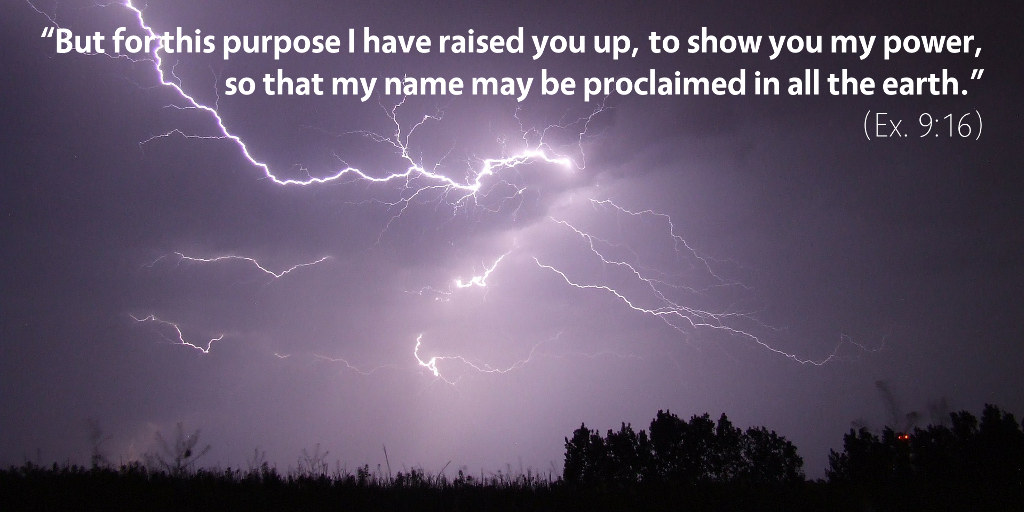Bible Readings for February 26th
Exodus 9 | Luke 12 | Job 27 | 1 Corinthians 13
As the plagues keep coming in Exodus 9, Moses continues to preach the word of Yahweh to Pharaoh. Every time they meet, Moses gives a bit more of Yahweh’s word, and in Exodus 9 we come upon one of the more interesting speeches that Yahweh makes through Moses when he explains why he is sending the plagues:
“For by now I could have put out my hand and struck you and your people with pestilence, and you would have been cut off from the earth. But for this purpose I have raised you up, to show you my power, so that my name may be proclaimed in all the earth.” (Ex. 9:15–16)
We looked briefly at verse 16 in our meditation for Exodus 7, but there are a few other points to which we should focus our attention.
First, God raised Pharaoh up specifically to display his power through him. All the power and wealth that God gave to Pharaoh—which Pharaoh misunderstood as evidence of his own glory and not as the gracious generosity of God—served only to underscore God’s defeat of Pharaoh. If not even the most powerful king in all the earth can stand against Yahweh, who possibly could?
Second, even though God’s purpose was to exalt himself over Pharaoh, he nevertheless displayed a significant amount of grace toward Pharaoh. God explains that if he had wanted to, he could have already cut off all Egypt from the earth. Yes, God is bringing judgment against arrogant Pharaoh, but there is nevertheless a significant amount of grace in prolonging that judgment and in preaching to Pharaoh his need for repentance before Yahweh.
Third, we should recognize that God’s judgment and his grace are not opposed to each other. It isn’t that God has dualistic sides to his personality, so that the “grace” side is constantly battling with the “judgment” side and that each side gets its victories from time to time. Not at all—in fact, we should recognize that God is bringing judgment on Pharaoh precisely because he wants to extend grace to the whole world.
You see, the purpose behind God’s bringing judgment on Pharaoh is “so that my name may be proclaimed in all the earth” (Ex. 9:16). In other words, the purpose behind God’s judgment is to glorify himself so that the world may come to believe in him for salvation.
And in this, we see a shadow of the purpose behind God’s pouring out his righteous judgment and wrath for our sin on the head of Jesus Christ, his beloved Son. God did not send judgment for judgment’s sake, but rather he sent judgment for the sake of extending grace to the world, so that all who repent of their sins (unlike Pharaoh) and believe on the name of the Lord Jesus Christ will be saved.
Podcast: Play in new window | Download (5.0MB) | Embed
Subscribe: Apple Podcasts | RSS | More

Scripture quotations are from The Holy Bible, English Standard Version copyright © 2001 by Crossway Bibles, a division of Good News Publishers. Used by permission. All rights reserved.


